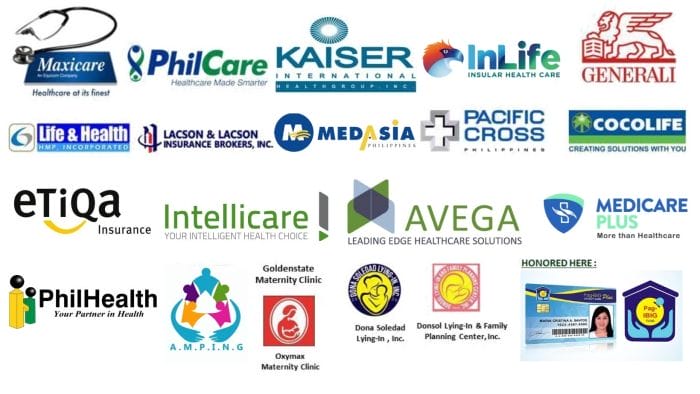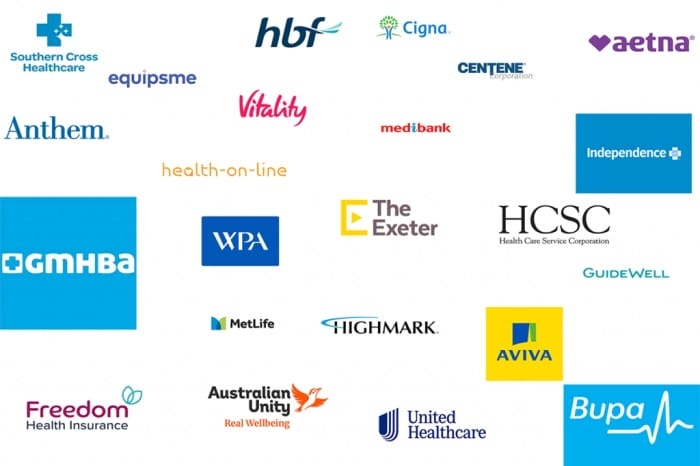Navigating the healthcare system can be daunting, especially when it comes to communicating with your health insurance company. Whether you’re seeking information about your policy, filing a claim, or resolving a dispute, effective communication is key to a successful interaction.
In this comprehensive guide, we’ll provide you with essential tips and strategies to help you navigate the complexities of speaking with your health insurance company.
Effective communication involves being prepared, organized, and respectful. Gather all necessary information, including policy numbers, dates of service, and provider names, before reaching out to the company. Clearly explain the reason for your contact, using polite and respectful language. Active listening is crucial; pay attention to the representative’s responses and ask clarifying questions to ensure a thorough understanding.
Establishing Initial Contact


Effectively communicating with your health insurance company requires preparation and organization. Gather essential information beforehand, including your policy number, dates of service, provider names, and any relevant documentation. Choose the most suitable contact channel – phone, email, or online chat – based on your preference and the nature of your inquiry.
Gathering Necessary Information
Being prepared with the necessary information streamlines the communication process and ensures your concerns are addressed promptly. Having your policy number at hand allows the insurance representative to quickly access your account. Dates of service and provider names are crucial for inquiries related to specific medical treatments or claims.
Additionally, keep any relevant documentation, such as medical bills, explanation of benefits (EOBs), or correspondence with the insurance company, readily available for reference.
Choosing the Right Contact Channel
Health insurance companies typically offer multiple channels for communication, catering to different preferences and the nature of inquiries. Phone calls allow for direct conversations with customer service representatives, enabling real-time resolution of issues. Emails provide a convenient option for detailed inquiries or attaching supporting documents.
Online chat, available on some insurance company websites, offers a quick and efficient way to connect with a representative.
Communicating Effectively
When reaching out to a health insurance company, effective communication is key to resolving your queries or concerns efficiently. Begin by clearly and concisely explaining the reason for your contact. Whether you’re inquiring about coverage, filing a claim, or seeking assistance with a medical bill, provide all relevant information upfront.
Being Clear and Concise
Be direct and specific when explaining your situation. Avoid rambling or providing unnecessary details. Instead, focus on the pertinent information that directly relates to your inquiry or concern. This helps the customer service representative understand your needs quickly and respond accordingly.
Using Polite and Respectful Language
Even in challenging situations, maintain a polite and respectful tone. Remember that the customer service representative you’re speaking with is there to assist you and is not responsible for any issues or frustrations you may be experiencing. Being polite and respectful not only creates a positive atmosphere but also increases the chances of receiving helpful and satisfactory assistance.
Active Listening and Clarification
Practice active listening by paying close attention to the responses provided by the customer service representative. If you have any questions or concerns, don’t hesitate to ask for clarification. By actively engaging in the conversation, you ensure that you fully understand the information provided and that any potential misunderstandings are addressed.
Active Listening and Patience

Effective communication with a health insurance representative requires active listening and patience. Attentively listening to the representative’s responses ensures a clear understanding of the information provided. Asking clarifying questions helps eliminate ambiguities and ensures thorough comprehension.
Clarifying Questions
- Ask specific questions to seek clarification on complex or unclear information.
- Use phrases like “Can you explain that further?” or “Could you provide more details?”
- Rephrase or simplify the representative’s response to confirm understanding.
Maintaining Patience and Composure
Conversations with health insurance representatives can sometimes be challenging. Maintaining patience and composure is crucial in resolving issues effectively.
- Stay calm and avoid becoming confrontational or aggressive.
- Remember that the representative is there to assist you and is not personally responsible for any issues you may be facing.
- Take breaks if the conversation becomes overwhelming.
Navigating Automated Systems

Automated phone systems are often the first point of contact when reaching out to a health insurance company. Navigating these systems efficiently can save time and reduce frustration.
Selecting the appropriate options and inputting information correctly is essential to navigate automated systems. Listen carefully to the prompts and follow the instructions precisely. Use the keypad to enter information, such as your policy number or member ID, accurately and without spaces or hyphens.
Handling Common Challenges
- Incorrect Options: If you select the wrong option, you may end up in a loop or be disconnected. If this happens, hang up and call back, starting over with the correct option.
- Unclear Instructions: If you don’t understand the instructions, don’t hesitate to ask for clarification. Press the appropriate key or say “representative” to speak to a live agent.
- Long Wait Times: Automated systems can sometimes lead to long wait times. Be prepared to wait on hold or call back during off-peak hours to avoid lengthy delays.
Dealing with Long Wait Times

When attempting to contact a health insurance company, extended wait times are a common occurrence. These prolonged periods of waiting can be frustrating and time-consuming. However, with the right strategies, you can manage these situations effectively.
Utilizing Hold Music or Opting for a Callback
One way to manage long wait times is to take advantage of hold music or opt for a callback. Hold music can help pass the time and make the wait more bearable. Additionally, many insurance companies offer a callback option, allowing you to leave your phone number and have a representative call you back when it’s their turn.
Staying Calm and Patient
It’s important to remain calm and patient during extended periods of waiting. Getting agitated or frustrated will only make the situation worse. Instead, try to focus on the task at hand or use the time to relax and gather your thoughts.
Utilizing the Wait Time Productively
You can also utilize the wait time productively. For instance, you can gather additional information about your health insurance policy or prepare a list of questions to ask the representative when they finally come on the line.
Understanding Insurance Terminology

Communicatiing with health insurance companies requires familiarity with industry-specific terminology. This section highlights the importance of understanding key terms and provides a glossary for easy reference.
Key Insurance Terms and Concepts
- Deductible: The amount you pay out of pocket before your insurance coverage begins.
- Coinsurance: The percentage of costs you pay after meeting your deductible.
- Copayment: A fixed amount you pay for certain medical services, such as office visits or prescriptions.
- Premium: The monthly or annual amount you pay to maintain your health insurance coverage.
- Out-of-pocket Maximum: The maximum amount you will pay for covered medical expenses in a given year.
Tips for Effective Communication
- Use Clear and Concise Language: Avoid jargon and technical terms that the representative might not understand.
- Ask Questions: Don’t hesitate to ask for clarification or additional information if you’re unsure about something.
- Be Polite and Respectful: Remember that the representative is there to help you, so treat them with courtesy.
Resolving disputes and appeals
If you are not satisfied with the decision of your health insurance company, you can file an appeal. This is a process where you can present your case to a higher authority within the company and request a review of the decision.
To file an appeal, you will need to gather the necessary documentation, such as your insurance policy, the denial letter, and any other relevant documents that support your case. You will also need to write a letter explaining your disagreement with the company’s decision and why you believe it should be reversed.
Once you have gathered all of the necessary information, you can submit your appeal to the insurance company. The company will then review your case and make a decision. If your appeal is denied, you may have the option to file a complaint with the state insurance department.
Submitting an appeal
- Gather the necessary documentation, such as your insurance policy, the denial letter, and any other relevant documents that support your case.
- Write a letter explaining your disagreement with the company’s decision and why you believe it should be reversed.
- Submit your appeal to the insurance company.
The company will then review your case and make a decision. If your appeal is denied, you may have the option to file a complaint with the state insurance department.
Tips for communicating with the company during the appeals process
- Be clear and concise in your communication.
- Provide evidence to support your case.
- Be respectful and professional in your interactions with the company.
- Be patient and persistent.
Establishing Initial Contact


When reaching out to a health insurance company, it’s essential to establish initial contact effectively. This sets the tone for future interactions and helps ensure your concerns are addressed promptly.
Phone Call
When making a phone call, prepare by having relevant information such as your policy number and personal details ready. Be clear and concise in explaining your reason for contacting them.
Written Correspondence
If you prefer written communication, compose a letter or email clearly stating your query or concern. Provide all necessary information, including your policy number, name, and contact details. Be polite and professional in your tone.
Additional Resources and Support

Navigating health insurance matters can be daunting, but individuals are not alone in their quest for assistance. Various resources and organizations are dedicated to providing support and guidance.
State Insurance Departments
State insurance departments play a crucial role in regulating and overseeing insurance companies. They are responsible for resolving disputes between policyholders and insurers, ensuring compliance with state laws, and protecting consumer rights. Individuals facing challenges with their health insurance company can reach out to their state insurance department for assistance.
National Organizations
- The National Association of Insurance Commissioners (NAIC): NAIC is a non-profit organization representing state insurance regulators. It offers resources and guidance to consumers, including information on filing complaints and resolving disputes with insurance companies.
- The Center for Medicare and Medicaid Services (CMS): CMS is a federal agency responsible for administering Medicare, Medicaid, and other health insurance programs. It provides information and support to individuals with Medicare or Medicaid coverage.
- The Patient Advocate Foundation: This non-profit organization provides free assistance to patients and their families in navigating health insurance matters. They offer guidance on understanding insurance policies, filing appeals, and resolving disputes.
Online Resources
- Healthcare.gov: This government website provides information on health insurance plans, subsidies, and other resources. Individuals can also compare plans and enroll in coverage through the website.
- The Kaiser Family Foundation: This non-profit organization provides in-depth analysis and data on health insurance and other health care issues. Their website offers comprehensive information, including research reports, infographics, and interactive tools.
- The Commonwealth Fund: This private foundation focuses on health care policy and research. Their website offers reports, analysis, and policy recommendations on health insurance and other health care topics.
Common Mistakes to Avoid

When interacting with your health insurance company, certain mistakes can hinder effective communication and lead to frustration. Being aware of these common pitfalls and implementing strategies to avoid them can improve your experience and ensure a positive relationship with the insurance provider.
Here are some common mistakes to avoid and tips for maintaining a productive relationship with your health insurance company:
Overly Emotional Responses
- Mistake: Expressing excessive emotions, such as anger or frustration, can escalate the situation and hinder productive communication.
- Tip: Stay calm and collected, even if the situation is frustrating. Maintaining a level-headed approach will allow you to communicate your concerns clearly and effectively.
Making Assumptions
- Mistake: Assuming that the insurance company representative understands your needs or has all the necessary information can lead to misunderstandings.
- Tip: Clearly communicate your concerns and provide all relevant information. Ask questions to ensure that the representative has a comprehensive understanding of your situation.
Not Following Up on Requests
- Mistake: Failing to follow up on requests or inquiries can result in delayed responses or unresolved issues.
- Tip: Keep track of your interactions with the insurance company, including dates, times, and details of conversations. Follow up on any outstanding requests or inquiries within a reasonable timeframe.
Using Aggressive or Demanding Language
- Mistake: Using aggressive or demanding language can create a negative atmosphere and hinder productive communication.
- Tip: Be respectful and polite in your interactions with the insurance company representative. A positive and cooperative approach is more likely to yield favorable results.
Lack of Preparation
- Mistake: Not gathering necessary information or documentation before contacting the insurance company can lead to delays and misunderstandings.
- Tip: Before reaching out to the insurance company, have all relevant information and documentation, such as policy numbers, claim forms, and medical records, organized and easily accessible.
Conclusion

Remember, maintaining a positive and productive relationship with your health insurance company is essential for a smooth and efficient experience. By following these tips and strategies, you can navigate the complexities of insurance communication with confidence, ensuring that your concerns are addressed and your rights as a policyholder are protected.
Q&A
How can I efficiently navigate automated phone systems?
Listen carefully to the instructions and select the appropriate options. If you encounter challenges, try alternative methods of contact, such as email or online chat.
What should I do if I face long wait times?
Utilize hold music or opt for a callback to manage your time effectively. Stay calm and patient, and use the wait time to gather additional information or prepare your questions.
How can I effectively communicate with insurance representatives?
Use clear and concise language, avoiding jargon and technical terms. Be polite and respectful, even in challenging situations. Ask clarifying questions to ensure a thorough understanding of the information provided.
What steps should I take if I need to file an appeal?
Gather necessary documentation, including claim denial letters and medical records. Write a compelling appeal letter, clearly stating the reasons for your appeal and providing supporting evidence. Be prepared to communicate with the company during the appeals process.
How can I maintain accurate records of my interactions with my health insurance company?
Keep detailed notes of phone calls, emails, and correspondence. Organize and store these records in a secure location. Maintaining a comprehensive record of insurance-related information is essential for future reference and potential disputes.



